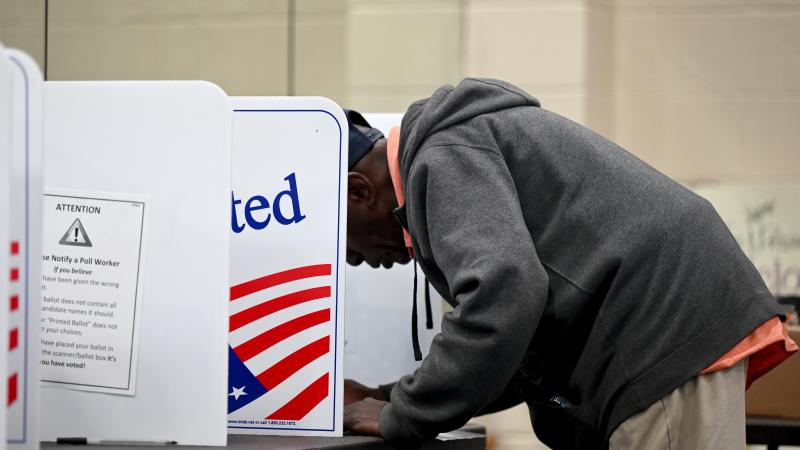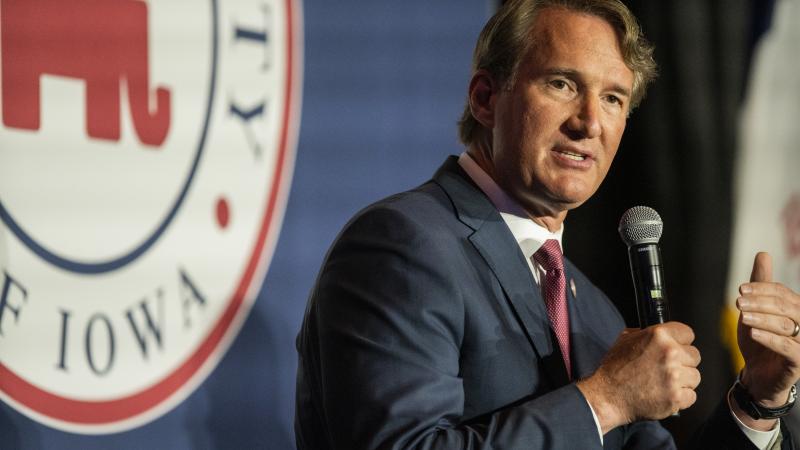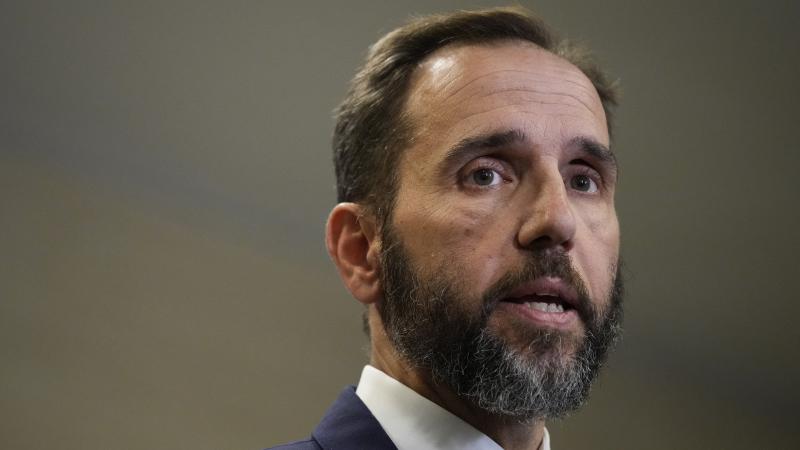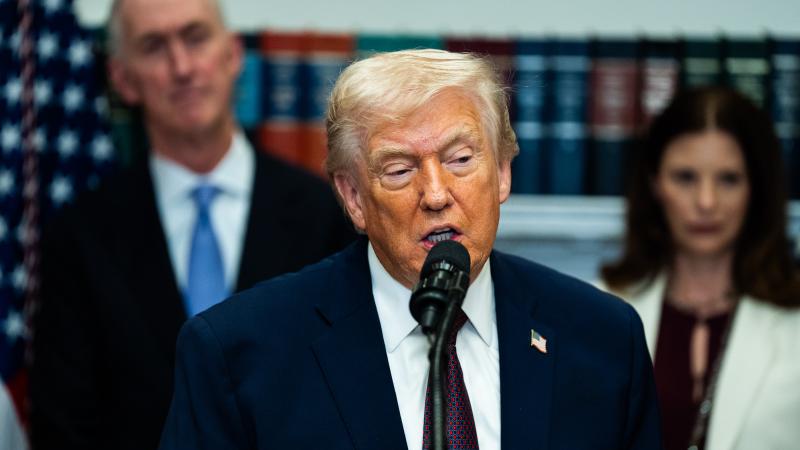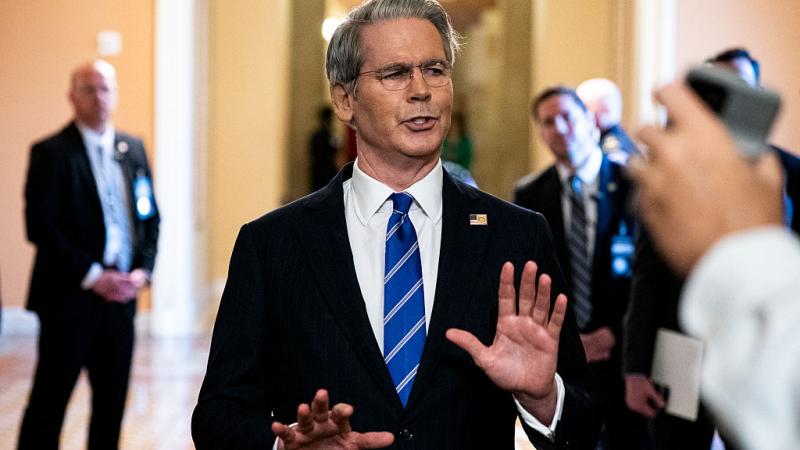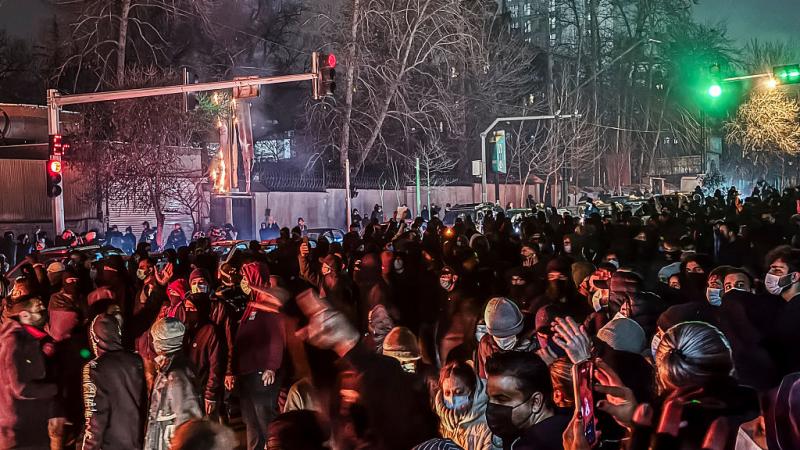Mississippi GOP Gov. Reeves suspects 'nefarious' intent in Dems' 'unconstitutional' election bill
H.R. 1, which would seize state legislative powers to make U.S. election rules and centralize them in Congress, passed the House March 3 without a single Republican vote.
H.R. 1, the legislative vehicle for far-reaching Democratic plans to overhaul U.S. election laws, is Nancy Pelosi's number one legislative priority — and congressional Republicans' number one nightmare.
Dubbed the For the People Act of 2021, the sweeping bill would reshape how the U.S. conducts its elections in ways left-wing voting activist groups have championed for years, dismantling state election security protections and concentrating in Washington the nation's constitutionally and historically decentralized powers to set election rules.
"This is a bill as if written in hell by the devil himself," Utah Republican Sen. Mike Lee fumed recently on "Fox and Friends."
"For 250 years in America, states have run their own elections," said Mississippi Republican Gov. Tate Reeves in an interview. "It's hard for some of us to look at actions such as [H.R. 1] and say, you know, 'I'm sure they just think it's good policy and not think that maybe they're up to some nefarious actions.'"
The bill passed the House last week without a single Republican vote.
H.R. 1 includes provisions that would prohibit the requirement of a signature on absentee ballots, and make it illegal for states to enforce voter identification laws.
Democrats tout the legislation as a new civil rights milestone, arguing it will increase access to voting for all Americans, especially racial minorities.
"In the wake of an unprecedented assault on our democracy, a never before seen effort to ignore, undermine, and undo the will of the people, and a newly aggressive attack on voting rights taking place right now all across the country, this landmark legislation is urgently needed to protect the right to vote and the integrity of our election," the White House said in a March 4 statement supporting the bill.
Republicans largely view the bill as an assault on American election security and states' constitutionally assigned authority for the conduct of elections.
H.R. 1 is "the worst piece of legislation I've seen in 20 years," said Hans von Spakovsky, a senior legal fellow at the Heritage Foundation.
In an interview on "Just the News AM," the attorney and former member of the Federal Election Commission enumerated some of the conservative objections to the bill he called an "800-page monstrosity."
"In essence, it gets rid of every single safety and security protocol that states have in place, overrides them and then requires states to do things that will basically completely damage the integrity of the election process," von Spakovsky said.
Von Spakovsky cited three provisions likely to be more controversial with the general public than Democratic lawmakers seem to anticipate: same-day voter registration, restoring voting rights to former felons and the prohibition of voter identification laws.
Von Spakovsky also highlighted a little-discussed public campaign financing provision of the bill. Under the legislation, every small-dollar donation to a campaign would be matched 600% by the federal government — effectively shifting campaign costs from corporations to taxpayers.
Democrats argue the bill creates a system of public financing for congressional candidates in order to eliminate big donor contributions. Von Spakovsky counters it will mean "your tax money may be used to fund the political campaigns of candidates who you would never even consider voting for."
Conservative critics fear the bill's federalization of elections will usurp state powers under the Constitution to set election rules, thereby upsetting a careful balance central to the founding fathers' constitutional design.
"It's unconstitutional," Gov. Reeves said in "Just the News A.M." interview. "The Constitution of the United States is very clear that elections shall be run by states. And that's the way it should be."
The founders, von Spakovsky explained, "didn't want the political party that was in power in Washington being able to set the rules for the administration of elections in this country in such a way that they will remain in office — in other words, change the rules so the incumbents can retain their power — and that's what you have when you have the feds running this and putting in all kinds of bad rules."
Notwithstanding the high-flown voting rights rhetoric in which Democrats have swathed their push for H.R. 1, Republicans suspect ulterior, highly partisan, motives behind the election changes.
The bill is replete with "just one provision after another that seems to be intended to make it easy to cheat and easy to manipulate election results," said von Spakovsky, claiming Democrats are "so desperate for power that they are willing to override basic security concerns when it comes to elections."
The Democrats believe "the more people who vote, even if they're ineligible, even if they're cheating, the better the chances there are that [they] will win elections," von Spakovsky suggested, adding: "I really can't see any other motivations for this bill."
Ultimately, von Spakovsky believes, Americans understand that "you want access to being able to vote, but you have to balance that with security, and this bill would get rid of any and all security in the election process."
"Polling shows that Americans overwhelmingly — no matter what their race or ethnicity or political persuasions — overwhelmingly think requiring an ID to vote is a common sense reform," he said.
A recent Just the News Daily Poll with Scott Rasmussen found that American voters, by a margin of 46%-41%, would oppose a law prohibiting states from requiring photo identification in order to vote.

